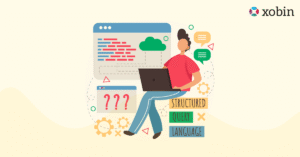Recruiting the right talent has never been more complex. With rising mis-hire costs, remote work, and evolving skill demands, relying solely on resumes and interviews no longer guarantees high-quality hires. This is where various types of talent assessments ranging from cognitive to behavioral tests come into play. They provide objective insights that help organizations make smarter, data-driven hiring decisions, reducing mis-hires and improving long-term performance.
Table of Contents
In this blog, we’ll explore the different talent assessment types, their strategic value, and how leveraging them can significantly enhance hiring success.
TL;DR – Key Takeaways!
- A mix of different types of talent assessments such as cognitive, skills, behavioral, psychometric, and scenario-based, leads to stronger predictability of job performance.
- Assessments reduce mis-hires, cut screening time, and enable structured, bias-free hiring.
- Leading companies use multi-assessment frameworks to evaluate not just capability but culture fit, learning agility, and long-term potential.
- When integrated with AI tools, assessments significantly improve accuracy, consistency, and hiring efficiency.
- Xobin empowers organizations with 3,400+ skills tests, 2500+ job role based tests, AI scoring, proctoring, and deep analytics for more confident hiring decisions.
Why Assessment-Driven Hiring Is Essential Today
Recruitment used to rely heavily on intuition, unstructured interviews, and keyword-matching resumes, but that approach is increasingly risky.
According to industry studies, a single wrong hire can cost up to 30% of annual salary, and in high-impact roles, the cost may be 3–5x higher.
Talent assessments help solve this by injecting objectivity and evidence into hiring decisions. They also ensure recruiters evaluate what truly matters: skills, competencies, potential, and behavior, not impressive resumes or interview charm.
Moreover, as roles evolve and shift toward hybrid skill sets, leaders need measurable insights into employee capabilities. Various types of talent assessments offer:
- Predictive data on performance
- Reliable evaluation of soft and hard skills
- Consistency across recruiters and panels
- Reduced bias through structured scoring
- Faster, more accurate shortlisting

Types of Talent Assessments That Improve Hiring Success
1. Cognitive & Aptitude Assessments: Predicting Job Performance
Cognitive ability tests consistently rank among the strongest predictors of workplace success. They measure how quickly and effectively a candidate processes information, solves problems, and learns new concepts.
Why Cognitive Tests Matter
Cognitive ability correlates strongly with performance in complex and dynamic work environments. For roles in engineering, operations, finance, and leadership, cognitive assessments offer:
- Insight into learning agility
- Ability to adapt to new systems and workflows
- Problem-solving proficiency
- Logical and analytical reasoning
A study by the Harvard Business Review indicates that general cognitive ability is one of the most reliable indicators of future job success, surpassing interviews and experience-based screening.
How They Improve Hiring Outcomes
Cognitive assessments help organizations:
- Identify high-potential performers early
- Eliminate candidates who look good on paper but lack reasoning skills
- Standardize screening across large hiring volumes
Moreover, when combined with role-specific skills tests, they dramatically increase predictive validity.
2. Skills Assessments: Measuring Role-Readiness & Functional Expertise
Skills tests evaluate a candidate’s practical ability to perform job-specific tasks. With increasing demand for job-ready talent, these assessments have become the centerpiece of modern hiring.
Types of Skill Tests
- Technical Assessments: Coding, debugging, system design, QA
- Non-technical Assessments: Sales, marketing, finance, operations
- Domain-Specific Assessments: Healthcare, legal, HR, manufacturing
- Software Skill Tests: Excel, Power BI, CRM, design tools
Why They Matter
Skills assessments validate whether candidates can actually perform the tasks they claim. This is especially crucial because research shows over 60% of resumes contain exaggerated skill claims.
Business Impact
- Reduced dependency on interviews for verification
- Lower mis-hire risk and training costs
- Faster shortlisting of high-quality candidates
- Alignment between candidate capability and role demands

3. Behavioral Assessments: Understanding Workplace Behavior & Culture Fit
Behavioral tendencies determine how a candidate interacts, collaborates, and responds to conflict. Moreover, behavioral assessments help measure traits such as:
- Accountability
- Adaptability
- Team orientation
- Ownership
- Reliability
- Communication style
Why Behavioral Insights Are Crucial
Even highly skilled employees fail when they exhibit toxic or incompatible behaviors. Behavioral assessments reveal how candidates:
- Communicate under stress
- Navigate ambiguity
- Collaborate across cross-functional teams
- Fit into leadership styles and organizational culture
A study by Gallup shows that managers hire candidates for skills but fire them due to behavioral mismatch, highlighting the importance of behavioral testing.
How They Improve Hiring Success
Behavioral assessments enable organizations to:
- Predict on-the-job behavior
- Reduce early attrition
- Improve culture alignment
- Build stronger, more cohesive teams
4. Psychometric Assessments: Measuring Personality, Values & Long-term Potential
Psychometric testing evaluates deeper psychological attributes, including personality traits, motivations, attitude, and mental frameworks.
What Psychometric Tests Measure
- Big Five personality traits
- Emotional stability
- Integrity and conscientiousness
- Decision-making styles
- Risk and stress tolerance
- Leadership potential
Why Psychometrics Matter
Personality impacts how an individual performs, grows, and collaborates. Psychometrics help leaders:
- Identify future leaders
- Understand compatibility with team dynamics
- Predict long-term potential
- Reduce biases that arise from subjective panel impressions
Additionally, psychometrics are indispensable for roles that demand emotional intelligence, such as leadership, sales, client-facing roles, and people management.

5. Situational Judgement Tests (SJTs): Evaluating Real-World Decision-Making
Situational Judgement Tests simulate real workplace scenarios and ask candidates how they would respond. Unlike theoretical tests, they evaluate applied judgment, common sense, and ethical decision-making.
What SJTs Measure
- Problem-solving in real contexts
- Ability to prioritize tasks
- Empathy and conflict management
- Decision-making under pressure
- Customer orientation
Why SJTs Are Valuable
They provide a window into how a candidate behaves in role-relevant, real-world situations. Research shows SJTs increase hiring accuracy because they reveal practical intelligence, not just theoretical knowledge.
How They Improve Hiring Success
- Higher prediction of job performance in service, operations, and customer-facing roles
- More accurate evaluation of judgment and maturity
- Reduced bias from traditional interviews
6. Communication and Language Assessments: Ensuring Clarity, Fluency & Professionalism
Communication remains a cornerstone of every role, especially in customer-facing or global organizations. Moreover, communication assessment tests actively evaluate written and spoken competencies, including:
- Grammar, clarity, and tone
- Articulation and fluency
- Listening and comprehension
- Structured and coherent responses
- Professional communication standards
Modern platforms use AI communication checkers to evaluate speech clarity, grammar, and tone consistency in real-time, ideal for remote or multilingual hiring.
Why Communication Testing Matters
According to LinkedIn, communication is the most in-demand soft skill in the world, especially in remote or global environments.
Business Impact
- Reduces communication-based performance issues
- Helps evaluate client-facing and leadership talent
- Ensures brand representation and professionalism
7. Coding and Simulation-Based Assessments
For technical recruitment, coding simulators and real-world problem-solving challenges provide the most accurate reflection of a candidate’s job performance.
Rather than theoretical tests, candidates work in an IDE-like environment, writing and debugging code. Recruiters can assess:
- Code efficiency
- Problem-solving strategy
- Collaboration under simulated conditions
Result: Faster technical screening and reduced engineering time spent on unqualified applicants.
8. Video and Situational Judgment Assessments
Modern hiring increasingly relies on remote and hybrid workflows. Video-based assessments evaluate candidates’ decision-making and communication under realistic scenarios, allowing companies to scale interviews and increase evaluation consistency.
For example, candidates might respond to a conflict-resolution prompt or role-specific challenge via recorded video. AI then analyzes tone, content, and emotional responses, helping recruiters identify high performers efficiently.
Benefits
- Reduces manual screening time
- Expands access to global talent
- Standardizes interview questions and scoring
- Provides deeper insights through body language and tone analysis
When combined with AI evaluation, video assessments also help minimize unconscious bias.
The Strategic Impact of Using Multiple Assessment Types
When organizations combine multiple assessment formats such as cognitive, behavioral, skill-based, and situational, they gain a holistic view of candidate potential.
According to SHRM:
- Using structured assessments improves quality-of-hire by 24%.
- Multi-assessment approaches cut hiring bias by 29%.
- Companies using predictive analytics in hiring are twice as likely to improve employee retention.
This data underscores why leading organizations are moving toward integrated assessment ecosystems.

Improve your Hiring Accuracy with Xobin!
Different types of talent assessments transform hiring from a subjective process into a science-backed strategy.
Xobin brings all types of talent assessments under one intelligent, AI-driven assessment platform. With over 3,400+ customizable skill tests and 180,000+ validated questions, Xobin empowers recruiters to evaluate every dimension of a candidate: skills, personality, cognition, and communication.
Key Xobin features that enhance hiring success:
- Pre-Employment Testing: Role-specific, adaptive tests for faster screening.
- Psychometric & Behavioral Analysis: Powered by validated models like DISC and Big 5.
- AI-Based Evaluation: Automatically scores open-ended answers, code quality, and communication.
- Video & Coding Simulators: Real-world testing environments for accurate candidate performance insight.
- AI Proctoring: Ensures test integrity with face, audio, and browser monitoring.
With integrations across ATS, HRMS, and CRM systems, Xobin streamlines hiring workflows and helps CHROs and recruiters make data-backed decisions with confidence.
Ready to improve your hiring outcomes? Book a personalized demo with Xobin today and experience AI-powered talent assessments that drive success.
FAQs
1. What are talent assessments used for in recruitment?
Talent assessments evaluate a candidate’s skills, aptitude, behavior, and cultural fit to predict job performance and reduce mis-hires.
2. Which type of talent assessment is most effective?
A combination of cognitive, skill-based, and behavioral assessments offers the most comprehensive evaluation and predictive accuracy.
3. How do assessments reduce hiring bias?
Standardized, data-driven evaluations minimize personal judgment, ensuring fair and objective comparisons across candidates.
4. Are talent assessments suitable for all roles?
Yes, assessments can be tailored for technical, non-technical, leadership, or entry-level positions across industries.
5. How does Xobin’s platform enhance hiring success?
Xobin integrates multiple assessments, like skills, cognitive, behavioral, and video, into one AI-powered platform, delivering fast, unbiased, and actionable insights.
6. What’s the ROI of using talent assessments?
Companies using structured assessments experience 36% lower turnover and 20–25% faster hiring compared to those relying solely on interviews.






